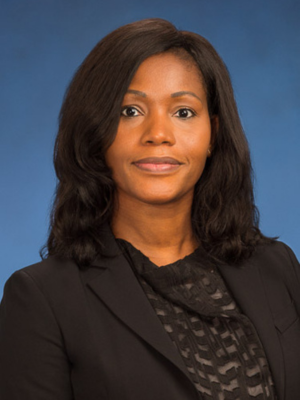 “Throughout my life, I’d often find myself in situations that were unfamiliar, but having the will to take the harder path typically leads to greater rewards,” says Pamela Codo-Lotti. “When I left Côte d’Ivoire for France, and later France for the U.S., my parents would ask, ‘Why do you always choose the most difficult route?’ But I’d remind them — that’s the example they set.”
“Throughout my life, I’d often find myself in situations that were unfamiliar, but having the will to take the harder path typically leads to greater rewards,” says Pamela Codo-Lotti. “When I left Côte d’Ivoire for France, and later France for the U.S., my parents would ask, ‘Why do you always choose the most difficult route?’ But I’d remind them — that’s the example they set.”
Resilient and driven, Codo-Lotti is continually inspired by the values her parents instilled in her from a young age. As a newly minted partner at Goldman Sachs, she has embraced challenges with relentless determination, a strong intellectual curiosity, and an unwavering commitment to her clients and colleagues. From her early love of numbers and education to her passion for mentorship and financial independence for all, Codo-Lotti shares how persistence and purpose are central to her journey.
From Associate to Partner
Fueled by an early interest in numbers and giving advice, Codo-Lotti found a career in finance to be the perfect fit. After moving to the U.S. from France to earn her MBA at the Wharton School of Business, Codo-Lotti joined Goldman Sachs as an Associate. Over the next two decades, she rose through the ranks up to her recent promotion to partner.
“It was a great moment because it’s a recognition by your peers and by your clients, of all your hard work,” she reflects. “I look forward to continuing to focus on building a stronger business, giving advice to more clients, and mentoring more people.”
For Codo-Lotti, the partner title is not just an accolade but a platform to amplify her impact. “As a senior leader, I have a deep understanding of the firm, allowing me to offer practical guidance and support to others in achieving success.”
Codo-Lotti credits her natural curiosity as an important element in her career evolution. “Finance is an expansive and ever-evolving field, and there’s always more to learn. Curiosity drives me — I’m constantly reading, exploring, and deepening my understanding of different areas, even in my current role.”
A Foundation of Education and Determination
Codo-Lotti notes how her insatiable curiosity and determination are rooted in her childhood and the inspiration of her parents, whom she considers trailblazers.
“They came from a small African country, Benin, and were sent to study in France on merit-based scholarships. They always told us, ‘Your brain is the most important thing. Nurture it.’ They went out of their way to get us to the best schools, no matter what.”
Her parents’ determination to give her a solid educational foundation was equally matched by Codo-Lotti’s internal drive. She highlights this quality as an important element to her success.
“There is a little white dog in a famous French cartoon named Idefix (“Idee Fixe”), which literally means ‘fixed idea.’ My dad nicknamed me that because even from a young age, when I want something, I go after it. Persistence and staying focused on the end goal really helped me in my career and got me through difficult and challenging moments.”
An Empathetic Approach
“People often tell me that I’m very empathetic,” she says. “It has been a tremendous asset because my clients know that I genuinely care. When someone has a problem, I really want to find a way to help. I think it has played a significant role in my career.”
Empathy also shapes Codo-Lotti’s leadership style. She explains, “In a team there will inevitably be a lot of opinions, so it is important to understand where people are coming from and what they’re looking to achieve.”
In addition, she tries to be intentional about being accessible to her team, recognizing that as she becomes more senior, the perception of her availability and approachability may change. “It’s important for me to spend time with my team at work, but also making sure we connect informally, whether for a quick coffee catch-up or dinner.”
Mentorship Advice
Beyond the inspiration of her parents, Codo-Lotti points to the guidance of mentors as integral to her career development. Now as a mentor to others, she advises, “the most important thing is to trust yourself and not shut down your own voice. While advice from mentors is important, they succeeded based on who they are. What works for them may not work for you.”
She continues, “what I tell people is that I will give you advice and tell you what I think is best, but at the end of the day you have your own instincts, and you have to see if that fits with who you are and what you want to do.”
When it comes to fostering mentoring relationships, Codo-Lotti encourages taking initiative. “Sometimes you have to take chances. Whenever I worked with someone who impressed me, I put time on their calendar and introduced myself. Sometimes you click, sometimes you don’t, but when you do, you invest in that relationship.”
Finding Strength in Uniqueness Through Executive Coaching
Executive coaching has played a pivotal role in Codo-Lotti’s growth, particularly in embracing her uniqueness while leveling up her communication skills. “I’m a French native speaker; English is my second language. When I came to the U.S., it took me a while to view my accent not as a disadvantage, but as something that made me unique.”
Coaching helped her refine her communication. “I focused on how I could be more structured, more powerful, more impactful—so that the accent became a strength. The firm provided me with a coach who helped me work on my communication and presentation style, which really made a difference. I also found having an external perspective, someone who listens and helps you understand how others hear you, to be invaluable.”
Committed to Education and Financial Independence for Women
Looking ahead, Codo-Lotti is passionate about uplifting the next generation. As a senior leader at Goldman Sachs, she emphasizes, “I hope to help a lot of talented and diverse junior bankers succeed.”
Codo-Lotti looks to extend that impact beyond Goldman Sachs through her work with the Jeremiah Program, which helps single mothers return to college. As a member of the board, Codo-Lotti is thrilled to be a part of the program’s mission.
“By supporting single mothers in pursuing their education, there is an opportunity to break the cycle of poverty across two generations — empowering both mother and child, so she doesn’t have to choose between her education, financial stability, and caring for her family.”
As a mother of a young family, Codo-Lotti finds joy in watching their intellectual curiosity take shape. “It’s fascinating to watch my children grow into their own as human beings. My husband and I love seeing their minds expand, even when it means that they start beating us at board games. It’s a reminder of how quickly they’re learning and evolving.”
Just as she was encouraged to nurture her mind and embrace learning, Codo-Lotti is committed to passing that mindset forward — both at home and in her broader mission to empower others.
By Jessica Robaire

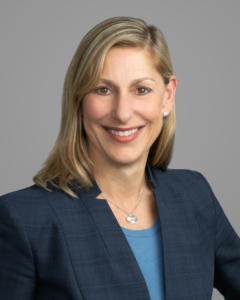
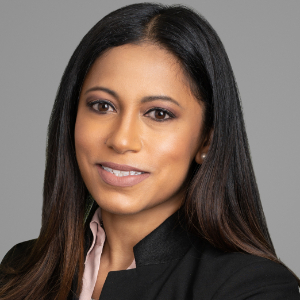
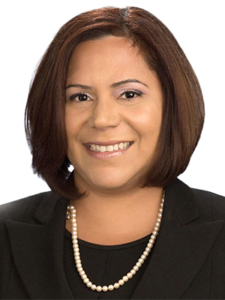
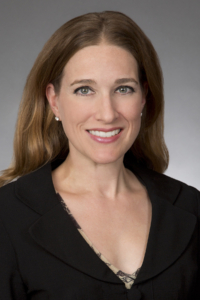
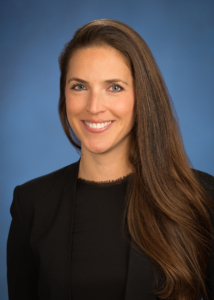
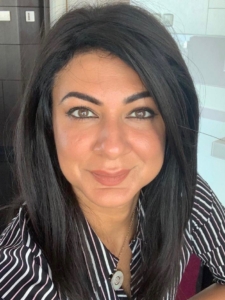
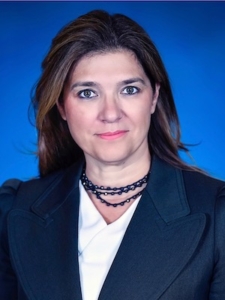
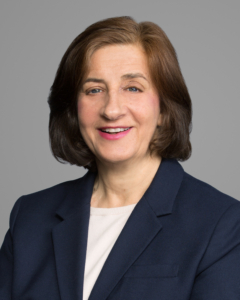 When Sue Light reflects on advice given to her over the years she acknowledges that sometimes it doesn’t become pertinent until you’ve been in the workforce long enough to see its value.
When Sue Light reflects on advice given to her over the years she acknowledges that sometimes it doesn’t become pertinent until you’ve been in the workforce long enough to see its value.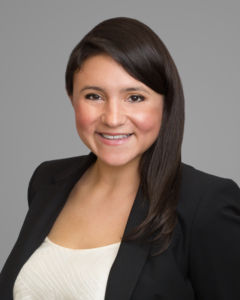 “What makes you a good attorney is learning from your mistakes—almost that trial by fire aspect that lets you constantly grow,” says Katten’s Shana Ramirez.
“What makes you a good attorney is learning from your mistakes—almost that trial by fire aspect that lets you constantly grow,” says Katten’s Shana Ramirez.